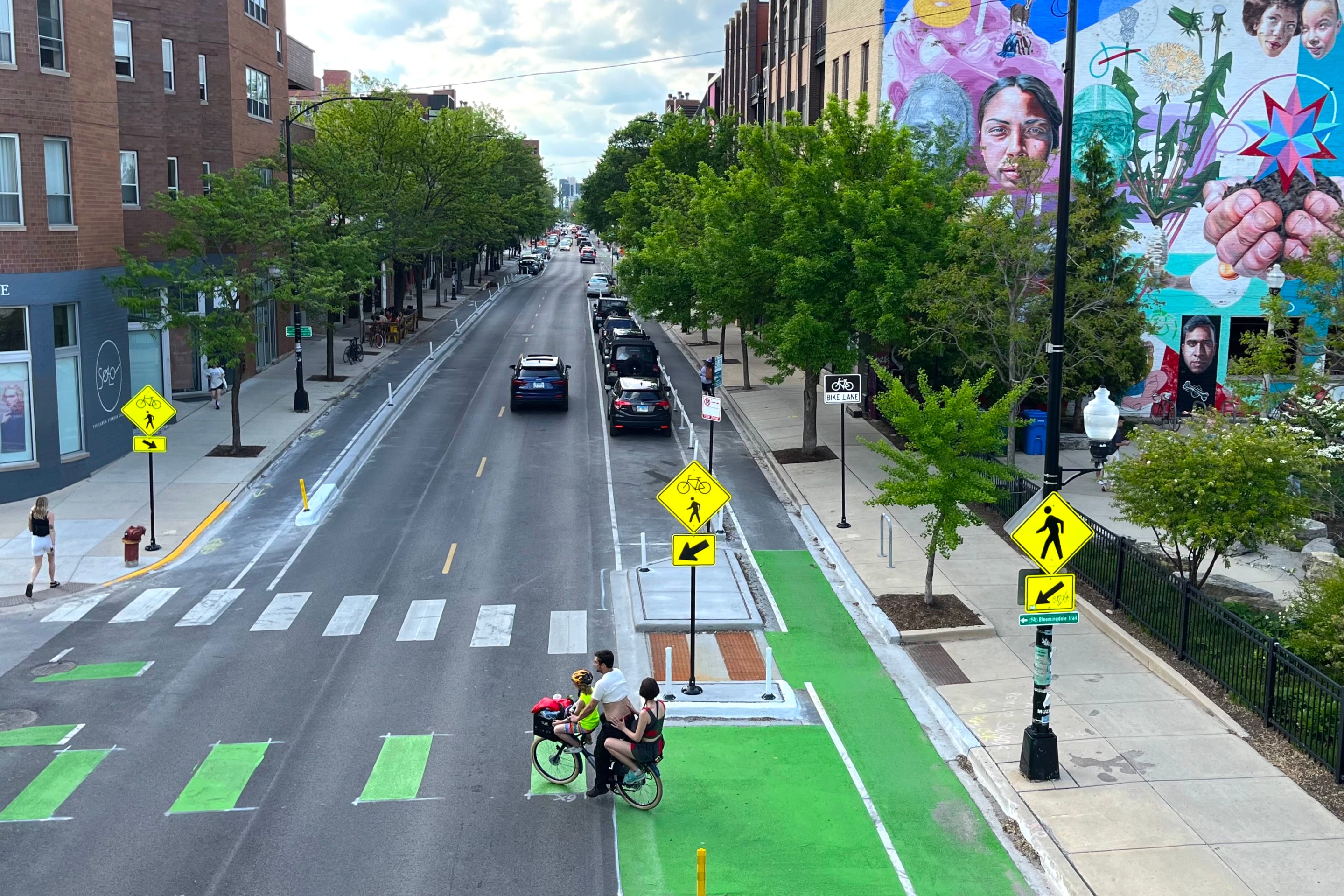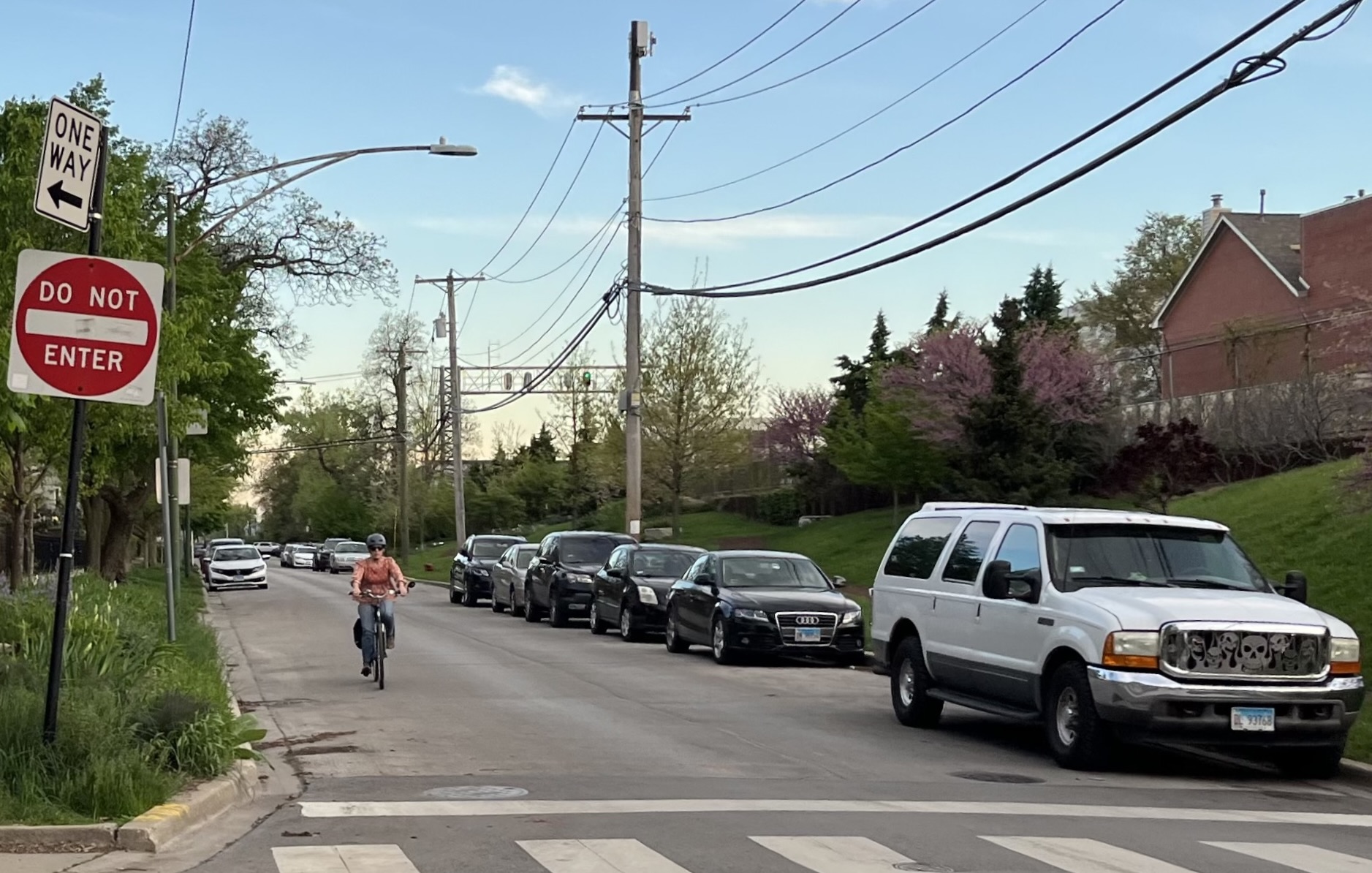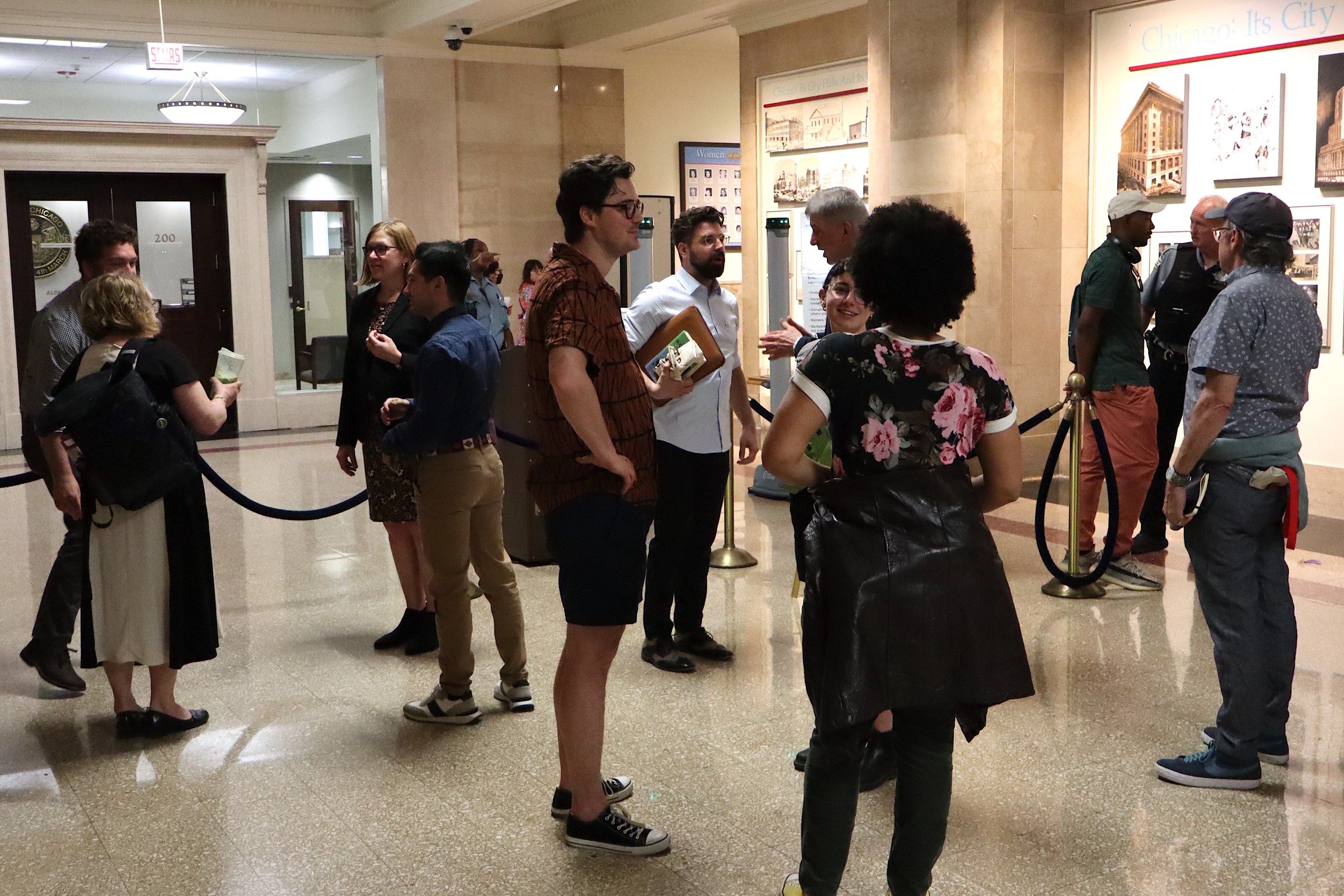Recent events highlight urgent need for Chicago to address homelessness, CTA crime
5:28 PM CST on January 24, 2022
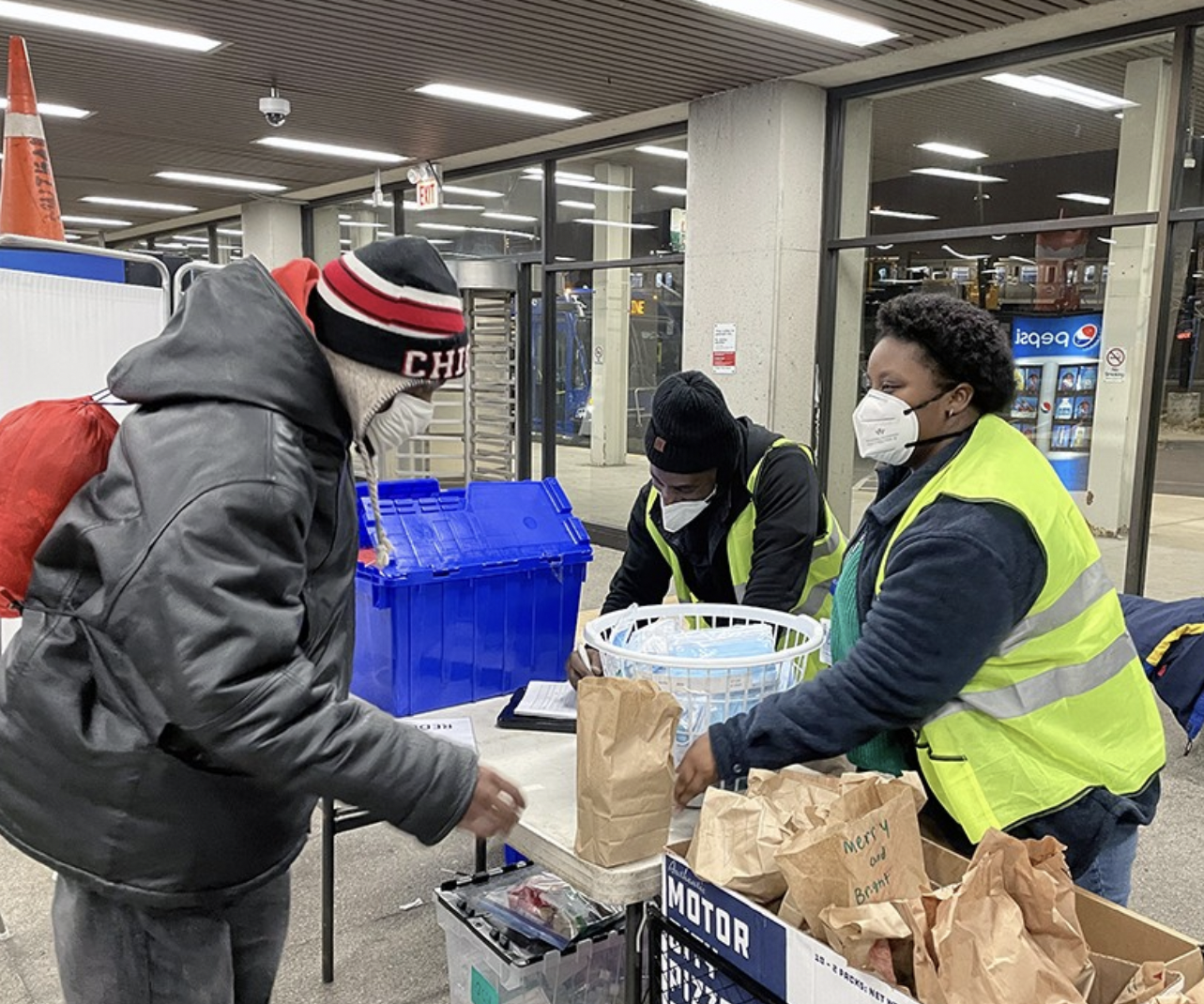
A resident receives a sack supper from Kyanna Johnson, an outreach worker for The Night Ministry, at a CTA Blue Line station. Photo: The Night Ministry
Streetsblog Chicago has published several articles in recent months about the need for the city officials to get serious about addressing the spike in violence against CTA passengers and workers during COVID-19, which has been impacting ridership and contributing to staffing shortages and service gaps. Related issues that may be also discouraging people from using transit include an apparent increase in smoking and littering on trains, and more people being forced to sleep across multiple seats in 'L' cars, especially during the current cold weather, due to Chicago's failure to adequately address its homeless crisis.
As we've previously written, Chicago leaders need to tackle these issues with holistic and humane solutions that don't create more potential for violence, or make life more difficult for our city's most vulnerable residents. We've discussed strategies like deploying unarmed Transit Ambassadors who can help deter crime, encourage compliance with important rules, and conduct outreach to people experiencing homelessness, offering to help connect them with services. More funding for mental health services, and to provide housing for every Chicagoan who needs it, are also key pieces of the puzzle for creating a safe and appealing transit system.
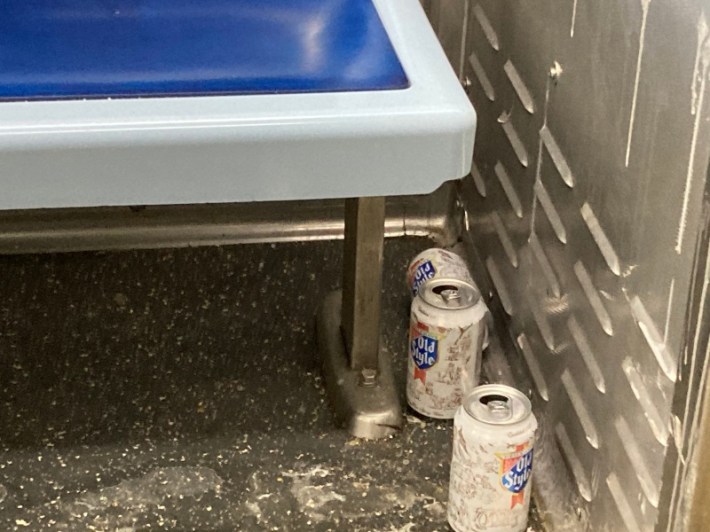
But news items from just the past few days underscore that it's crucial for city officials to immediately address these issues. Otherwise, we may never see local transit ridership return to pre-pandemic levels. Instead we could enter a vicious cycle of decreased fare box revenue, service reductions, and still fewer people choosing to ride transit, with the dependability of buses and trains – and onboard conditions – continuing to decline. Let's take a look at some recent headlines and commentary.
Man stabbed during argument on CTA train in Chatham
According to a Sun-Times report, on the night of Wednesday, January 19, at around 10:40 p.m., an assailant stabbed a 33-year-old man in the head during an argument on a Red Line train near the 79th Street station. The victim was transported to the University of Chicago Medical Center in fair condition. There were no reported arrests.
This was just the latest case in an epidemic of stabbing incidents in CTA trains, stations, and buses during COVID. The previous week four people were stabbed during two different attacks at downtown 'L' stops, according to an ABC Chicago report. On Thursday, January 13, at around 9:15 p.m., two men robbed a 29-year-old man at knifepoint on the Jackson Red Line platform and stabbed him in the back of the ear, and then stabbed two other men as they fled the scene. The first victim was taken to Northwestern Memorial Hospital in fair condition, and the other men declined medical attention.
And on Friday, January 14, at around 3:30 a.m., two men got into an argument on the platform of the Washington Blue Line station, when one of them stabbed the other with scissors, ABC reported. The victim, aged 29, was transported to Northwestern Memorial in fair condition. There were no immediate arrests in either of the downtown cases.
Images of suspect in armed robbery at Illinois Medical District station released
According to the Chicago Police Department, on Sunday, December 26, at about 7:10 p.m., a man approached a woman on the Blue Line's Illinois Medical District station platform, threatened her with a gun, and stole her cash and phone, Fox reported. Police have released surveillance images of a suspect.
Night Ministry rep: More people are sleeping on ‘L’ due to cold, COVID hardships, overtaxed shelters
A CTA rider shared with CBS Chicago photos he took of people, many of them unmasked, sleeping across 'L' train seats next to trash and cans of beer. (Some mobility justice advocates have argued that it's "dehumanizing" for news outlets to publish photos of unhoused people sleeping on transit.) “I realize they can’t stop the homeless from riding, I realize they can’t make everyone wear a mask but I just wanna be able to ride a train that isn’t filled with tobacco smoke and filled with garbage, and [doesn't] have people that are fighting on it," the person told reporter Tim McNicholas.
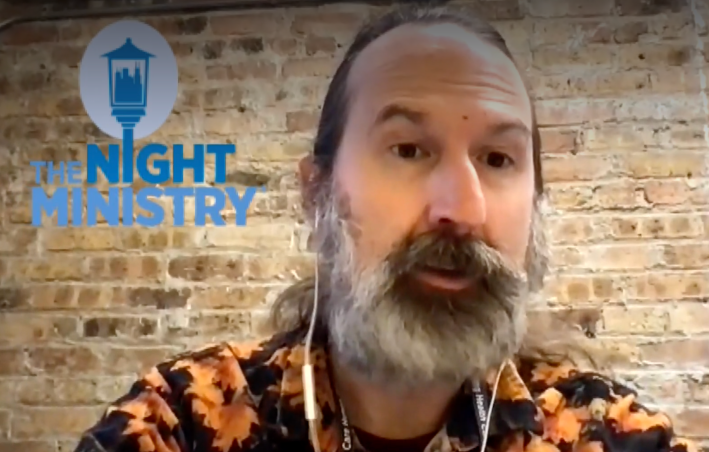
Next McNicholas got a homelessness advocate's perspective on the issue by interviewing Burke Patten from The Night Ministry, a housing and healthcare nonprofit. The group does twice-weekly outreach on the Red and Blue lines, which run all night, offering to connect unhoused individuals with shelters and offering masks, clothes, and personal hygiene items.
Patten said it appears that more people have been sleeping on the streets during the pandemic, a time when more people are facing economic and mental health crises. Moreover, shelters have been forced to limit capacity during COVID to allow for social distancing, and some potential clients have been avoiding these facilities for fear of catching the disease.
The advocate said said that last Thursday night during four hours of outreach on the Blue Line, Night Ministry workers saw 150 homeless people. "150 is at the high range of what we would see normally on an evening."
To put the homelessness issue in perspective, if the availability of the CTA as a last-resort option for shelter helps alleviate suffering, or even prevents deaths, during cold weather, obviously that's a good thing. But no one should be forced to sleep on a train due to lack of housing options.
Letter to Tribune: "I moved to Chicago partly for transit, but lawless environment on the ‘L’ will kill ridership"
Finally, beverage industry professional Peter Vestinos published a letter to the Chicago Tribune that did a good job of outlining the issues on the CTA, and the potential consequences of failing to address them, although I disagree with his proposed solution.
"I moved to Chicago 20 years ago in part because of the ease of moving through a sprawling city via bus or train, and I continue to believe in the need for accessible and affordable transportation," he wrote. "In my career, I would often ride the Red Line at very late hours. [The things] I would occasionally witness at 2 a.m. are now very common occurrences at 2 p.m."
"Train cars filled with cigarette and marijuana smoke, homeless people sleeping across several seats, loud music, and riders threatening violence are regular occurrences at any time of day," Vestinos added. "These now-common issues also cause delays in the system."
He noted that the CTA doesn't exist just for work commuters like himself, but also for families and visitors. "But how is a family expected to take children onto a train when it is filled with smoke? Why would a visitor to Chicago choose the CTA if safety is at risk?"
Vestinos pointed out that the worse conditions are on trains, the worse they will get, since fewer eyes-in-the-cars enables bad behavior. He added that as more potential customers avoid the CTA, the streets will become more clogged with cars, taxis, and ride-hail vehicles, exacerbating pollution.
I disagree with his assertion that more police are needed on transit ("The absence of police encourages more criminal behavior.") Recent incidents of the enforcement of minor infractions by police escalating to bloodshed suggest that unarmed Transit Ambassadors are a better approach for improving safety than adding more guns to the system.
However, at the end of his letter, Vestinos nails exactly what is at stake here. "The current state of the CTA hurts us all. It discourages people from visiting and speeding money at businesses, it discourages tourism, it makes event organizers question why they would choose Chicago, and it is pushing residents out of the city. If we are to fully recover from the pandemic, we need to reclaim our precious resource of clean, reliable and safe public transit."
In addition to editing Streetsblog Chicago, John writes about transportation and other topics for additional local publications. A Chicagoan since 1989, he enjoys exploring the city on foot, bike, bus, and 'L' train.
Stay in touch
Sign up for our free newsletter
More from Streetsblog Chicago
Due to incredible support from readers like you, we’ve surpassed our 2023-24 fundraising goal
Once again, the generosity of walk/bike/transit boosters is fueling our reporting and advocacy.
Which Metra corridor would become more bike-friendly and greener under a new plan? Ravenswood!
Thanks to plans to convert little-used parking spaces, the avenue is slated to get a new bike lane, and the Winnslie Parkway path and garden will be extended south.
They can drive 25: At committee meeting residents, panelist support lowering Chicago’s default speed limit
While there's no ordinance yet, the next steps are to draft one, take a committee vote and, if it passes, put it before the full City Council.

